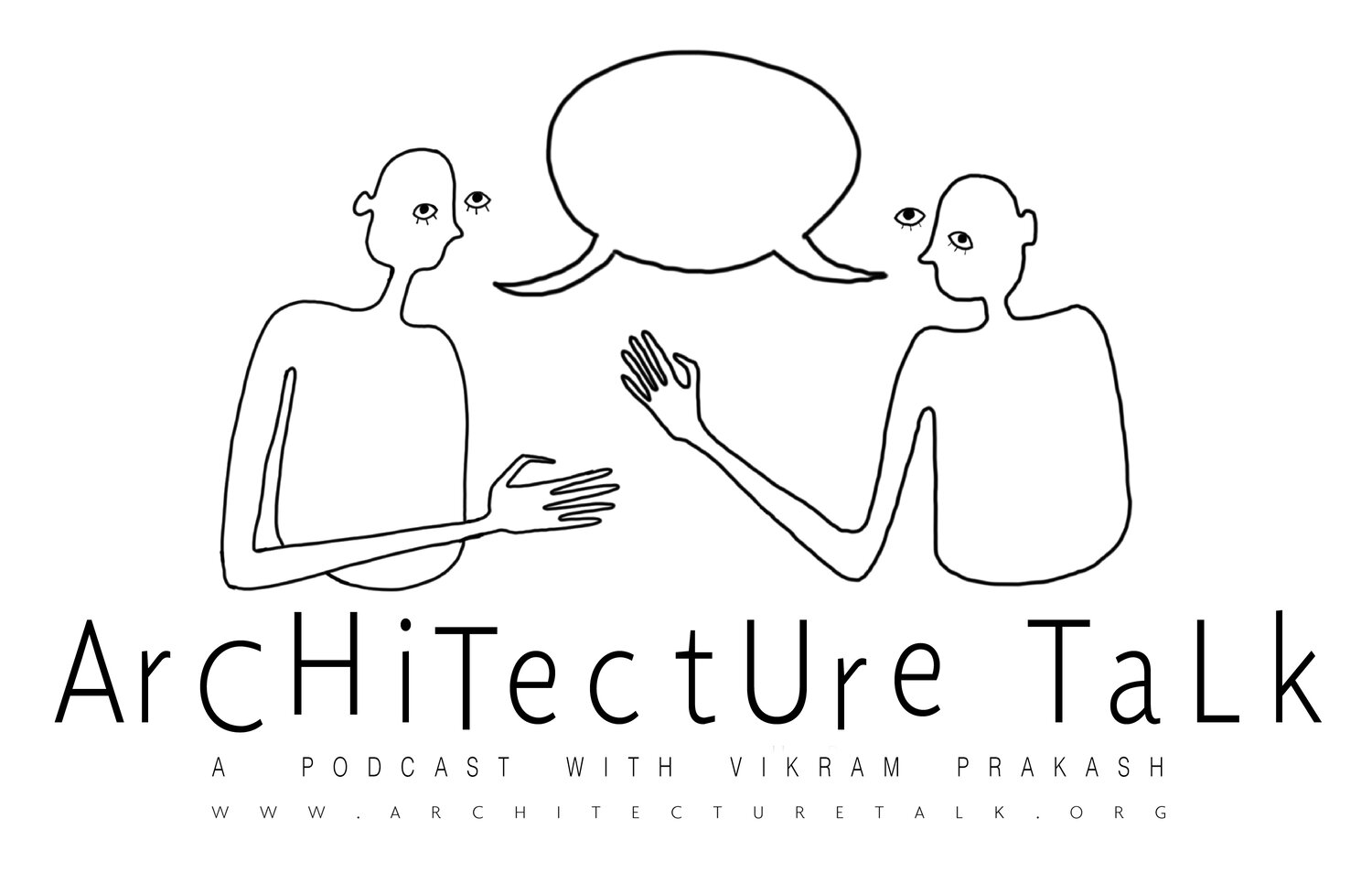107. OCL Part 2: Modernism and the Skeptic Turn with Mark Jarzombek, Anthony Vidler, Partha Mitter, and Sunil Khilnani
Original Drawing by Tori Haynes
“What you’re seeing today in India is that strand of modernism actually finding some life...you see the desire to ‘look’ modern and its matched with reactionary politics…”
Sunil Khilnani
In part two of our two-part series One Continuous Line, we sit down with Mark Jarzombek, Anthony Vidler, Partha Mitter, and Sunil Khilnani to discuss the relevance of Indian Modernism in terms of its various contemporary postcolonial contexts.
Timestamp Outline
* we return to this conversation now that the book One Continous Line has been released
* you can view the entire panel discussion here
49:51 The question of Ethics and the question of appearance and things as they actually are...Modernism constructed or articulated itself as some kind of ethical situating of the socious...a rethinking of times...what is the status of that today? This is linked with the climate and energy question VP
52:10 devaluation of the aesthetcis on the one hand, land value is increasing, and these buildings are literally obsolete. Vidler
54:13 Theres a certain moment where the total planning that was so important to the interdisciplinarity of modernism (like the new towns, where everything was linked) once one of those things became obsolete then land value became much more important. And also the triumph of neoliberalism capitalism has became very important. Vidler
54:57 The crises that we are facing in terms of pandemics to environment to major social crises, they wipe out talk of aesthetics… Vidler
56:01 Nationalist architecture…
57:04 One has to recall the historical complexities of modernism and aesthetic modernism very often went with reactionary politics...Windham lewis, ezra pound, le corbusier himself...this idea that you could be aesthetcally on the edge of things but your politics would harken back to a world of order, where you know your place, deference, authority… Sunil
57:49 What you’re seeing today in India is that strand of modernism actually finding some life...you see the desire to ‘look’ modern and its matched with reactionary politics Sunil
59:18 The current view of the function of the state is that we should somehow be expressive of the society as it is, and therefore the architecture of the state as opposed to gentle correction from the State… Sunil
1:00:00 Where is the State today? How did we go from the 50s 60s “gentle correctiveness” to here? VP
1:02:00 If we look at things globally, MidCentury Modernism was propelled by the optimism of science...you must always innovate...recently, we have begun to question this optimism...What do we do with teleology? Partha
1:05:00 Who doesn’t want history to be valuable? Mark
1:06:00 BREAK - start of audience questions TitlePART 4: The Role of Activism in Theorizing the Present.
1:06:00 With all its faults, modernism’s social idealism at its core made a language of its theory very relatable to practice. This is no longer possible. Has the rejection of modernism created a crisis of theory within the profession?
1:08:00 postmodernism as a critique of the major strands of modernist theory and the critique of postmodernism Mark
1:11:45 Shift in environmental consciousness and environmental costs, concrete was this universal material that allowed this esperanto ambition - you could do modernism anywhere. But now there is a local turn towards what is immediately at hand, perhaps this is a moment of great inventivenss since we must move away from the modernist historical material palette. Sunil
1:14:19 What is the role of activism in theorizing the present? Marginalized voices versus re-colonizing voices...what is the difference between them? What has to get silenced to make room for new voices? Who makes those decisions? Mark
1:16:35 ethical questions that arise from “silencing” voices…I’m more for re-reading and re-voicing… Vidler
1:17:40 a note on Charles Davis and his research - His academic research excavates the role of racial identity and race thinking in architectural history and contemporary design culture.
1:18:28 question about Chandigarh furniture…questions of labor and authorship
1:21:26 The unheard voices… craft with an important ethical dimension Partha
1:23:13 Does MidCentury Modernism have lessons to offer us today? VP
1:25:03 Part of the critique of modernism must be self-critique...and part of that is looking at history. The experiment of modernism provides us with tools for self-critique. We now have the sufficiency of experience to draw on for sparking a much deeper debate about architecture as a lightning rod for a social-historical moment Sunil
1:30:10 Isn’t that where we come in as historians and cultural critics? Its our work to gradually bring into focus not just hte historical value of these constructions and their internal developments but also the cultural questions that they raise and the positions they hold in a nation thats entirely unfinished… Vidler
1:31:43 Ethical-enviro component Vidler
1:33:44 We have to take the time to listen to what the ancestor stones have to say. This is a challenge to architects because we don’t normally operate this way. Its a nominalist ethics where we should do no harm. Mark
1:35:32 one of the interesting problems with modern art is of course the cannon and the problem of incommensurate time…Hegelian view of history... Partha
1:38:15 Is it not true that we have entered into a moment of forces where consumerist forces are maximal does the modernist discourse stand a chance? VP
1:39:30 The only thing left is to historicize the thing belatedly. Mark






